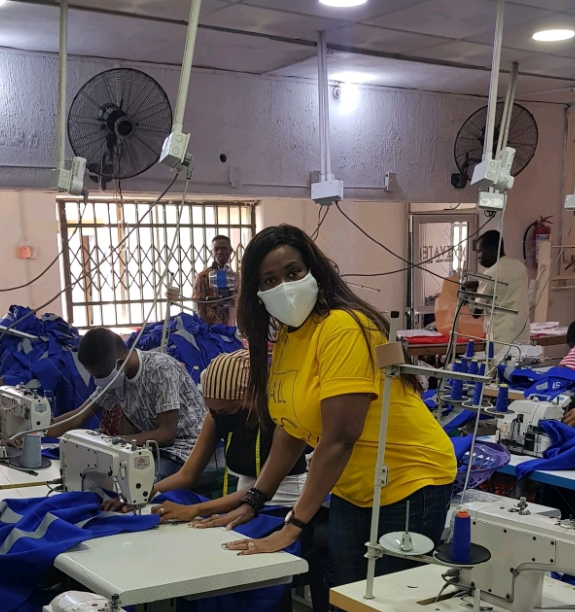Sola Babatunde is building a structured, skills-driven fashion ecosystem in Nigeria by combining vocational training, local garment manufacturing, and national policy reform.
When Sola Babatunde launched OSC Group in 2009, her goal was to restructure the fashion industry. At the time, Nigeria’s fashion scene had raw talent, bold creativity, and a growing market. However, it lacked structure in garment production and skilled manpower. Most designers struggled with manufacturing, and pattern makers were scarce. Mass production was nearly impossible unless you outsourced abroad.
Sola saw the gap and filled it.
Building OSC Group to fix the gaps
OSC Group operates with a two-pronged structure. On one hand, there is OSC College of Fashion, a vocational and technical fashion school that trains individuals in production-ready skills such as manual pattern drafting, garment construction, fashion entrepreneurship, tech pack development, and industrial machine operation.
On the other hand, there is One Stop Celebration Ltd, a garment production company that manufactures large quantities of school uniforms, corporate wear, branded sportswear, and export-quality ready-to-wear clothing.
Together, these two arms form a complete pipeline that trains people, gives them jobs, and produces quality garments locally. As of 2024, more than 3,500 students have passed through her school. Many have started their businesses, worked in established production houses, and some returned as instructors.
Providing an alternative to importing
Inside her factory in Lagos, Sola Babatunde has built a full-scale production facility equipped with automatic pattern cutting machines, specialised sewing machines such as flatbed, overlock, and cover stitch units, quality control rooms, and finishing and pressing stations.
The setup supports small batch and mass production orders while doubling as a training ground for new workers. Her idea is to stop sending jobs abroad and keep them in the country. If Nigeria wants to compete in the global fashion economy, it must invest in factories, skilled workers, and efficient systems. So, Sola Babatunde is building all three.

Beyond the numbers, she supplies uniforms to public and private institutions, produces workwear and official kits for government agencies, handles white-label production for private brands, and even fulfils branded clothing orders for NGOs and donor-funded programs.
Babatunde is driving policy, too
Babatunde’s work doesn’t stop at the operational level. She also shapes the future of Nigeria’s fashion industry through policy. She is a National Technical Consultant for the Federal Ministry of Trade and Investment, helping develop national garment training and production standards. She has also collaborated with international development organisations such as USAID, UNIDO, USADF, and GIZ.



